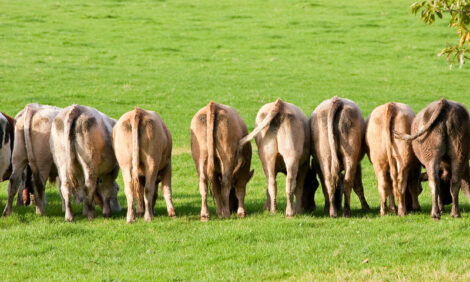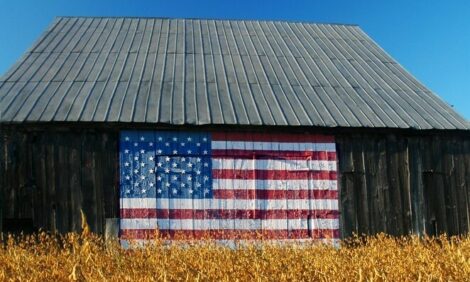



New Zealand Meat Industry Mega Merger Falls
NEW ZEALAND - Plans to unite the New Zealand beef and lamb industry into one united body have stalled.The proposal led by the meat processing giant Alliance looked to bring all the farming and processing companies into one cooperative body.
The Alliance proposal put forward by its chairman Owen Poole earlier this year aimed to create a single new entity with NZ$5 billion turnover and NZ$400 million per annum increased benefits.
It looked to have 80 per cent of New Zealand supply managed from farm-to-market and bring about a rationalisation of excess capacity, improving yields and adopting of best practice.
* "In our view this is not an industry solution but a piecemeal acquisition model which is not what has been put before the stakeholders to date" |
|
Eoin Garden, Chairman of PPCS Limited
|
However, the move has been blocked by another New Zealand processing giant PPCS.
Eoin Garden, Chairman of PPCS Limited, said that industry consolidation along the lines of the proposed Alliance Group’s mega-merger concept still represented the ultimate solution for the long term sustainability and profitability of the New Zealand meat industry.
However, he was concerned that the proposal was turning into a mega-merger between the two processing giants followed by piecemeal acquisition of other smaller companies.
"We understand some other potential participants have not signed the Alliance imposed agreement. This implies the proposed mega-merger had effectively become a merger of PPCS and Alliance, which would then look for opportunities to acquire certain assets from other meat industry players. In our view this is not an industry solution but a piecemeal acquisition model which is not what has been put before the stakeholders to date," said Mr Garden.
Mr Garden, in advising of the decision of the PPCS board not to sign the current form of the co-operation agreement as proposed by Alliance, said Alliance had failed to address two fundamental issues; firstly, the need to follow a conventional process including proof of concept and business case prior to valuation work and secondly, that all other participants sell all processing assets into the entity.
As a way forward PPCS has proposed a "co-operation agreement" intended to advance a "proof of concept" – that outlines the industry structure and shape of any merged group and provides feasibility, and clarity around the position of other participants, leaving open the prospect of a more detailed agreement in due course.
This could include offshore marketing agreements.
Mr Garden said that to advance these alternatives, as a matter of necessity, a suitably qualified independent person would be appointed to govern the process.
"The original Alliance Concept as detailed in its letter to shareholders of 12 February 2008 stated the concept was based on aggregation so that '80 per cent of NZ livestock is managed from farm to market'. This model was estimated (although still not substantiated) to improve farm gate returns by NZ$400 million.
"Given the failure of other participants to commit to sell their businesses into the model, that model is no longer on the table. Accordingly, the estimated cost savings and rationalisation benefits of merging five businesses were no longer available to the proposed merged entity." Mr Garden said PPCS could not be held responsible for the model not proceeding when its foundation had effectively changed and the other parties were not participating to the level envisaged under the original AGL Concept.
"A very real danger in pursuing a hybrid of the original concept is that it pays a premium for assets others are willing to sell, incurs rationalisation costs, takes on substantial debt on behalf of farmers, but still leaves some or all of the re capitalised participants competing against the new entity either directly or in other species."
Mr Garden added that while active leadership as shown by Alliance and other promoters was admirable, it needed to be supported by comprehensive analysis and an executable implementation plan. “The current proposed Mega Meat merger had neither.
"PPCS has and will continue to promote or support initiatives within the industry to remove cost duplication and capture additional market opportunities. In that respect we have recently explored cost reduction and aggregation initiatives, both of which were not taken up by the companies that had been involved in the Mega merger negotiation," said Mr Garden.
"Our Rightsize Project, which is about repositioning our business and other initiatives, are projected to deliver significant benefits to PPCS shareholders and contribute to industry rationalisation. Accordingly, the PPCS board and management are totally committed to pursuing these initiatives irrespective of any other proposals to rationalise the industry at this time," said Mr Garden.
He suggested that in contrast to the uncertainty that surrounded the Mega Merger in terms of time frames and outcome, the PPCS initiatives:
- Would be achieved within the next six months
- Were not dependent upon outside agencies such as the Commerce Commission, Government or European Union
- Would deliver significant benefits to the company and suppliers alike
- Would not compromise in any way an industry consolidation which we believe will ultimately take place.
"We would still maintain that a merger or a strategic marketing alliance between the main parties in the industry is appropriate and supportable in the longer term, and we would support those aims. Accordingly PPCS is more than willing to engage, in good faith, with Alliance or other parties in any constructive initiatives to improve the industry structure."
The collapse of the scheme has been met with regret from the New Zealand meat industry body Meat and Wool New Zealand.
Chairman, Mike Petersen said: "We are bitterly disappointed that the concept will not progress to the next stage of assessment.
"Lack of profitability for sheep and beef farmers continues to be a critical issue and although prices are now rising in the market, it has become increasingly clear that structural change is required to enable better returns for farmers in the long-term.
"The issue of food security is the new phenomenon sweeping the world and New Zealand is well placed to capitalise on this opportunity - however bold changes are required to ensure we capture these benefits," Mr Petersen said.
At the recent Meat & Wool New Zealand AGM in Palmerston North, Mr Petersen urged farmers to work with meat companies to address the lack of industry profitability. He reinforced the importance of surety of supply by farmers so that the companies could focus more on the markets and less on farm gate procurement.
"We have tinkered with the industry for the last 20 years and it’s time to use this window of opportunity to make a change.
"Meat & Wool New Zealand sees itself contributing to the momentum for change currently demanded by farmers. So while today’s announcement may be seen as a setback, Meat & Wool New Zealand will be promoting to the Meat Industry Taskforce the need for ongoing analyses of options that will provide a better future for our farmers and industry."
Further Reading
| - | Go to our previous news item on this story by clicking here. |
TheCattleSite News Desk


